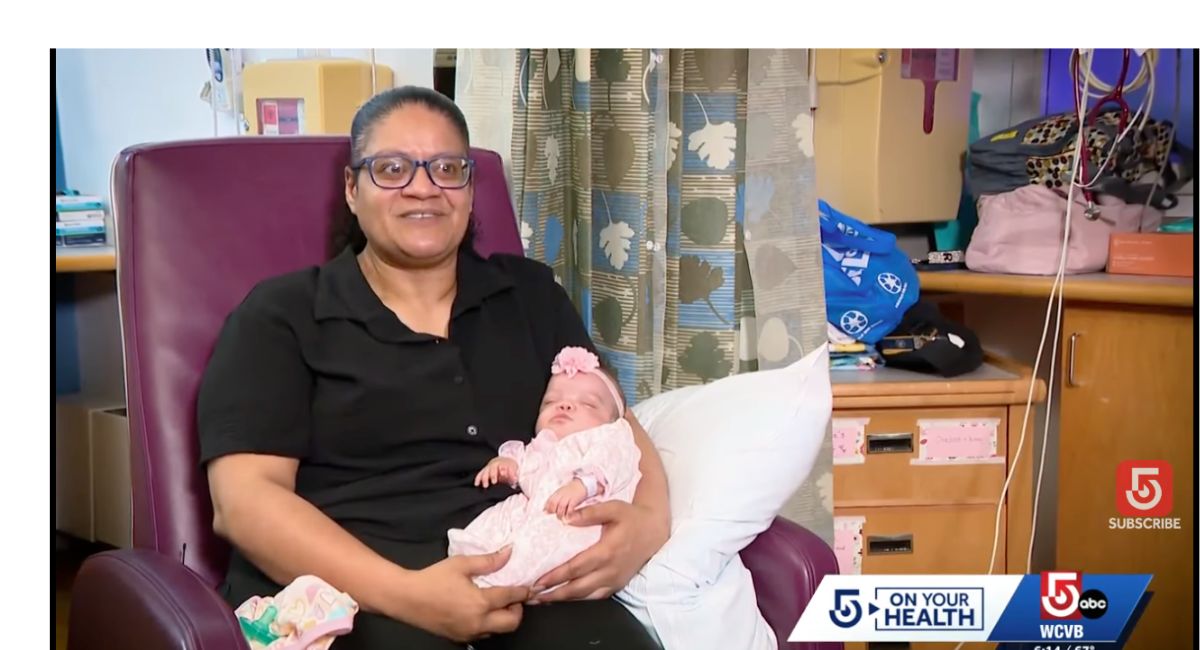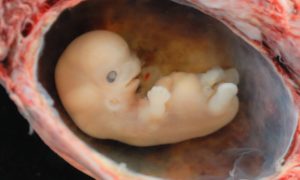A premature infant who was born at just 23 weeks gestation has been discharged from the NICU after 151 days.
Key Takeaways:
- Angelisse Rentas was born at 23 weeks, weighing one pound, four ounces.
- Her twin brother did not survive.
- Doctors gave her a 30% chance of survival, and she has defied the odds.
- She was discharged from the hospital this week after 151 days in the neontal intensive care unit.
The Details:
Angelisse Rentas was born in February at just 23 weeks after her mother, Ivelisse, went into early labor. Her tiny twin brother, Elvin, sadly died hours after birth; doctors at Tufts Medical Center in Boston said Angelisse had only a 30% chance of making it.
“It was a lonely, emotional feeling,” Ivelisse said of Elvin’s loss. “So any time I talk about her, it gives me a chance to mention her brother. So it’s like, bittersweet.”
Dr. Jaclyn Boulais, the medical director for the NICU at Tufts, explained some of the difficulties that micro-preemies like Angelisse face.
“You have to think that they’ve missed out on 17 weeks of gestation where they should be growing inside of mom and getting nutrients from mom in the placenta,” she said. “Now they’re born early and asked to do all of that on the outside.”
Despite the prognosis, Angelisse pulled through and is now well enough to go home with her parents. “She fought hard to be here, and [the doctors] fought hard to keep her around, and there’s no words for that,” Ivelisse told WCVB. “I’m just happy.”
READ: ‘The hardest yes’: How I found healing and purpose in choosing life and open adoption
“She’s not on oxygen,” Boulais said. “She has not had a severe intraventricular hemorrhage. She’s never had a single infection. She tolerates her feeds. She takes her full bottles. That is just outstanding for someone who’s been born as young and as tiny as her. She’s truly amazing.”
In an interview with WCVB, Ivelisse also mentioned experiencing five previous pregnancy losses. She felt like she had space to better grieve those losses, along with Elvin’s, while visiting her premature daughter in the NICU.
“It’s just easier to shut down and keep it to ourselves, but I notice with those losses, it helped me be more verbal and able to talk about it. Because I noticed when I didn’t talk about it, the more I hurt by myself,” she explained.
Ivelisse said one of the things she is most looking forward to is being able to have Angelisse with her all day.
“Being here, I only got to spend a couple of hours with her and then go back home and wait all day to then come again and see her,” Ivelisse said. “Now it’s going to be different because I get to wake up to her. She’s going to be there. This ain’t a dream — and she’s going to be there with us.”
The Bottom Line:
Thanks to medical advancements, micro-preemies as young as Angelisse — and even younger — have a chance at survival, but not every hospital is equipped to handle such tiny infants. The organization TwentyTwoMatters has created a global map of hospitals that are willing to help premature babies as young as 22 weeks.
Follow Live Action News on Facebook and Instagram for more pro-life news.







